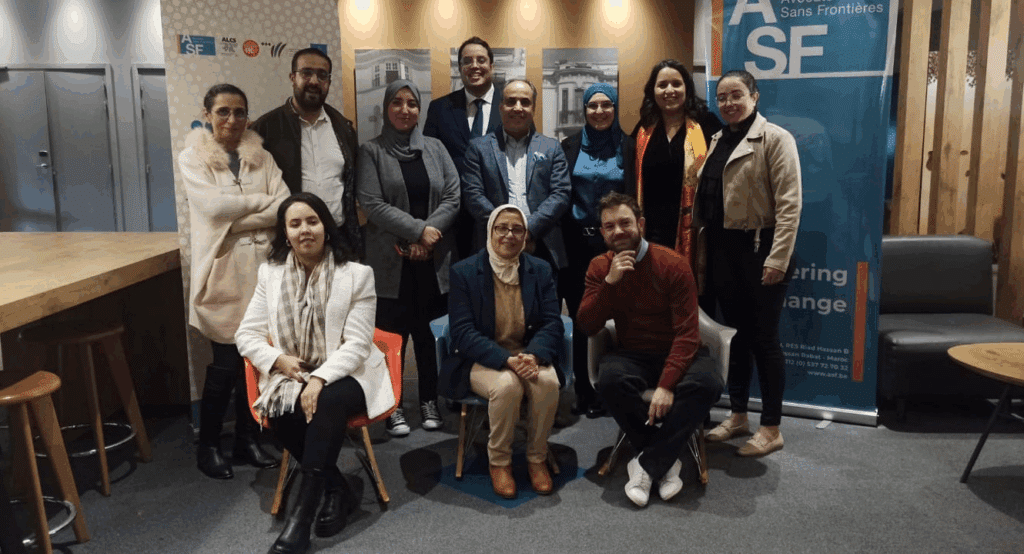
This article is part of ASF’s 2024 annual report.
In Morocco, as in many countries, criminal laws continue to punish behaviours often linked to poverty, marginalisation or activism. In collaboration with the Observatoire Marocain des Prison (OMP), Avocats Sans Frontières (ASF) conducted a groundbreaking national survey in 2024 on perceptions of minor offences and alternative sentences, as part of the Campaign to Decriminalise Poverty, Status and Activism. This work is part of a structural reform of the criminal justice system, aimed at ending the arbitrary use of prison for so-called ‘minor’ offences and paving the way for fairer, more humane and effective responses.
The Campaign to Decriminalise Poverty, Status and Activism is a coalition of organisations from around the world that advocate for the repeal of laws that target people because of their poverty, status and/or activism.
Formerly known as the Campaign for the Decriminalisation of Minor Offences in Africa, the Campaign has recently taken on a global scope and broadened its focus to include laws that target people based on their social, political or economic status and/or activism.
It brings together lawyers, legal professionals, members of the judiciary, activists and experts from more than 50 organisations, including national, regional and international non-governmental organisations, national human rights institutions, legal aid organisations, research institutes, universities and activist groups.
Criminalisation affecting marginalised groups
Historically inherited from the colonial era, many provisions of the Moroccan Penal Code target people not for what they have done, but for who they are: poor, homeless, migrants, LGBTQI+, or activists. These so-called ‘minor’ offences — such as begging, vagrancy, or certain religious or societal offences — are regularly used to control or punish vulnerable populations.
By subjecting vulnerable populations to criminal justice responses to socio-economic problems, they are further marginalised. The retention of these minor offences in criminal codes therefore fuels a vicious circle: while sentences are often short, the consequences for the incarcerated person (criminal record, loss of employment, social stigma, etc.) and their family are often significant and long-term. This vicious circle also tends to exacerbate the already serious and chronic problems of prison overcrowding in the country.
The decriminalisation of these offences in favour of a socio-economic response outside the criminal justice system is therefore the objective of the ‘Poverty is not a crime’ campaign.
Widespread support for fairer justice
The survey, conducted among 1,009 people representative of the Moroccan population, reveals a profound disconnect between current criminal justice practices and society’s expectations. While certain offences are still perceived as serious — particularly those related to morality or religion — a majority of respondents reject the idea of a criminal response to acts linked to precariousness.
Alternative sentences: a credible and expected response
The survey also highlights a high level of support for alternative sentences to imprisonment, despite limited awareness among the general public. Around four out of five respondents believe that they are a viable option and that community service is the best alternative to prison, helping to prevent reoffending and promote reintegration.
These results confirm the relevance of the awareness-raising activities carried out by ASF as part of the ‘Poverty is not a crime’ campaign, which advocates a non-criminal, socio-economic approach to minor offences.
Advocacy based on field data
The survey is the first step in a process of advocacy and citizen mobilisation, feeding into a public awareness campaign in Morocco. It enables us to identify the groups most affected, test the levels of social acceptance of reforms and develop messages tailored to the reality of perceptions.
At the same time, this data strengthens our advocacy with judicial and legislative institutions for (1) the repeal of discriminatory criminal provisions, (2) the development of alternative sentences in legislation and practice, and (3) a reform of the criminal justice system based on human rights and social justice.
A global fight for fair justice
The Campaign to Decriminalise Poverty, Status and Activism, led by an international coalition of more than 50 organisations, including ASF, now extends far beyond the African continent. Together, we are working towards a paradigm shift: moving away from the criminal justice system as a response to social, economic or political issues, and making justice a lever for equality and dignity.
Because no one should be imprisoned for being poor, marginalised or politically active, ASF is strongly committed to a fairer, more humane and inclusive justice system.



